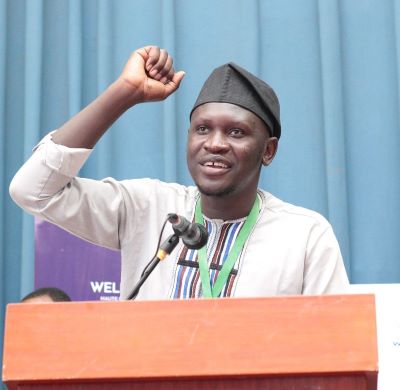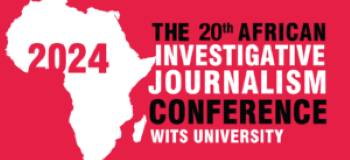Amadin Ogbewe
Since President Bola Tinubu signed the the Students Loan Law, also known as the Access to Higher Education Act on June 12, there have been three different dates announced for possible commencement. The permanent secretary at the federal ministry of education had slated September 2023 as the time for disbursement to begin. This however did not happen as he said.
Less than a month after the minister of Education, Professor Tahir Mamman, was sworn in, he’d appeared on National television on September 12 to announce that the loans would likely kick off in October 2023. This also did not go according to plan. However, speaking at the 29th National Economic Summit on Monday, the President announced that the disbursement would now begin in January 2024.
“By January 2024, the new Students Loan Programme must commence. To the future of our children and students, we are saying no more strikes,” Mr Tinubu said. In the course of the various announcements, there have been significant changes in the economy of the country, occasioned by the removal of fuel subsidy and the floating of the naira. The exchange rate has seen 1 dollar currently trading for over 1,200 naira in the parallel market and fuel still selling above 600 naira.
Education seems under threat as more students and parents find it difficult to cope with dwindling disposable incomes and accompanying hike in school fees at tertiary institutions. As a result, Nigerian students who have been seeking a lowering of the stringent conditions for accessing the loans, are now anticipating its proposed commencement in January more than ever before.
Students had protested and lobbied the lawmakers to make amendments to these requirements.
The North Central Zone Coordinator for the National Association of Nigerian Students, NANS, Shedrack Anzaku, spoke about their success so far in lobbying a former NANS executive in the House of Representatives, Bashir Gorau, to seek a change.

Shredrack Anzaku(PC: Shredrack Anzaku, Facebook
“So we told him that some parts of the loan doesn’t favor students as regards the payment method and also the amount to be paid. Because these students are believed to be less privileged. So if we are charging them to pay within a short time, it will not be able to tell good about the law.
He added,“So we at the National Association of Nigerian students, we believe it’s very long overdue. It should be announced, if not possible, as soon as possible. But since they’ve said January, we wait patiently to ensure that it gets to Nigerian students and we want it to go down to the less privileged Nigerian students”
Anzaku maintained “Since fuel subsidy has been removed, the best palliative you can give to Nigerian students is reduction of fees.” A Nigerian student who spoke under promise of anonymity stated “You can’t say you are giving students a loan and ask them to bring a certain level of civil servants or a letter from VC or provost. If I have access to level 15 civil servant, I don’t need a loan.”, he said.
What you need to know about the students loan Act
On June 12 Democracy Day, 2023, while Nigerians basked in the ever familiar public-holiday-glow, the president who kept his promise to hit the ground running after inauguration, by signing the Student loans bill into law amidst the democracy day celebrations.
The objective of the act, as the name implies, is to make education accessible to all Nigerian students who are genuine indigents interest free loans. Ideally, this would enable the poorest in the society to afford a higher education that improves their quality of life.
Eligibility
Any student who has secured admission to a higher institution with an income or family income of no more than N500,000 per annum. The student must provide as guarantors: (i) civil servant of at least level 12 in the service, (ii) lawyer with at least 10 years post-call experience, (ili) judicial officer, or (iv) justice of peace. These provisions have left many pondering if these requirements do not disqualify the intended target of the act. Any student in both Public and private universities can apply
Who is Ineligible?
Any applicant with a history of defaulting on loans or with parents who have done the same. Also those who are convicted of drug or dishonesty related offenses and also those guilty of exam malpractice. It’s clear the act has a moral bent with beneficiaries expected to be of good record.
How to Apply
The Nigerian Education Loan Fund shall come from 1% of taxes to the government amongst other sources.
Interestingly Section 16(4) says disbursement of loans shall be based on availability of funds, which implies that funds are not always guaranteed.
To access the loans, a student must apply through their bank to a committee led by the central bank Governor with a letter from their vice-chancellor, rector or head of institution. A reply will be given within 14 days of application.
Repayment
According to the act, beneficiaries will begin repayment 2 years after the completion of the mandatory national youth service corps program and will require 10% of their salary or profits. While there are no outright punishments for defaulting, the act indicates that failure to declare self employment within the stipulated time could lead to jail term, a N500,000 fee or both. There is no stipulated time limit for repayment.
How student loans work elsewhere
In developed climes, student loans are often accompanied by interests and time limits for repayments. The rates of employment and job creation however, are also significantly higher. In England, the loans are forgiven after a certain amount of time has passed without completion of payment and the government does not take the agreed percentage of the graduate’s salary if said graduate isn’t earning enough at the time.
Lingering question(s)
One of the issues is the mention of “tuition” payment as the purpose of the act. This is an issue as public tertiary institutions do not currently charge for tuitions, rather other fees, hence the growing fear that despite the advent of the loan, education will become even more expensive.
Another concern is the limit of annual income(N500,000) which is deemed to be higher than the minimum wage which stands at N360,000 per annum. The limit successfully eliminates a class of persons who could benefit from the loan. For instance a family earning a combined N500,000 per annum has a joint monthly income of about N41,000. Which implies that a family earning N42,000 a month is ineligible.
The method of determining yearly income, particularly for blue collar jobs and vocational work is also a mild source of worry for prospective applicants.
The manner to be employed by the government in ensuring monitoring and repayment of loans is also in question. Are there guaranteed employment for graduates who take the loan?

























